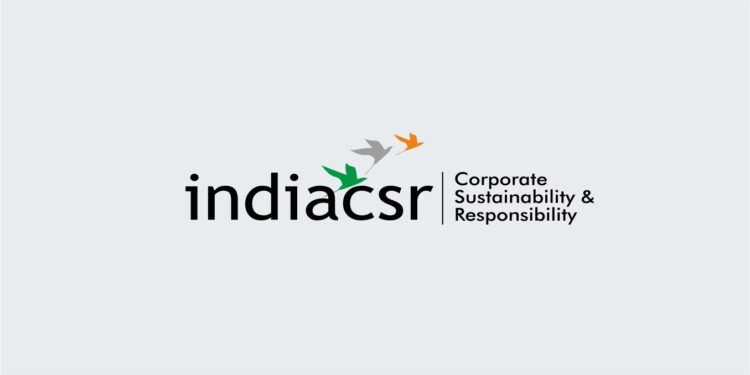The CSR reporting survey 2015 of KPMG further apprises that by and large CSR activities of companies are concentrated towards health and sanitation (26%) education (24%) and environment (11%) apart from rural development (9%), Women empowerment (4%) and others.
The KPMG in its latest report India’s CSR reporting survey 2015 has explored CSR initiatives and compliances of top 100 listed companies in India as mandated in Companies Act 2013 and Rules. It is heartening to observe that the mandatory provisions like making CSR policy available on web domain, CSR disclosure in annual report etc. are now by and large being complied by all the companies (except a few) after the enactment of Company Law, 2013.
Charity, donations and other philanthropic activities, which are now termed as CSR in modern term, had been an integral part of business activities in the past across the globe including India. In our country after independence (post 1990 era) liberalization, globalization and privatization have facilitated phenomenal rise in economic growth of companies and simultaneously their quest and efforts to achieve sustainable development further necessitated adoption of various CSR initiatives more conspicuously as their contribution to society.
As per Ministry of Corporate Affairs (MCA), during 2014-15 a total of 6338 crore rupees were spent on CSR activities by 51 Public Sector Undertakings (PSUs) and 409 Private companies. As per report of Ernst & Young, the mandate of spending 2% of average profits of the past three years on CSR activities may cover around 8000 companies under its ambit and bring approximately Rs. 14000 to 15000 crores per annum for various CSR activities. The expectations from this policy change are likely to offer new windows of opportunities both for the Corporate and government not only to assist and supplement the ongoing programmes of government for its various social, economic and environmental interventions but also to provide opportunities for new innovations to Corporates while addressing various challenges to achieve equitable and sustainable economic development thereby ensuring maximum possible contribution from business(s).
Environmental Performance Index
Yale and Columbia University in its recently published Environmental Performance Index (EPI) 2016 has ranked India at 144th place among 180 countries with over all score of 53.58.
One bright side of 2016 ranking of India is 20% improvement in various parameters in last 10 years specially in sanitation and waste water treatment but the deteriorated air quality due to emission from power plants, industries, fossil fuel burning etc which has placed India at almost bottom (178 th place) is quite deploring and call for urgent and concentrated efforts to improve it. The Corporates need to expand their ongoing endeavors in these directions.
Development agenda in priority
It is well know fact that the developmental agenda always finds top priority for any country and more specifically for developing nations in order to meet its multifarious demands. To fulfill this the States are bound to promote and encourage (some time out of turn) support to Corporate groups and companies which is the need of hour to fulfill various obligations /expectations and economic prosperity. The recent initiatives like Ease of doing business (EODB) of Central government and TS iPass of Telangana state apart from similar initiatives of other state governments are almost akin to post 1990 reforms that have helped to facilitate timely establishment of business activities as part of developmental process.
Doing business in Telangana
Apart form this the State governments provide various incentives like allotment of land at concessional prices, rebates on various utilities, tax reliefs etc to them. However keeping the goals of sustainable development in view, it is also desirable that the third pillar of sustainable development i.e., Environment apart form economic and social development also gets equal consideration from all quarters. It is imperative from the scope and concept of Sustainable Development that corporate/ business organizations/ individuals must not operate under competitive pressures to achieve short-term goals (profits), which endanger long-term objectives of environmental protection and intergenerational development.
Environmental degradation
Same time in present days conditions of environmental degradation it is highly expected that in addition to getting profits, the policy and actions of the corporate groups including governments should be really proactive to provide enough space for long term goals of environmental protection and intergenerational considerations. This is where the concept of environmental CSR or Green Initiatives of CSR comes into fore. Here it is also pertinent to mention that many of the Corporations have put into practice various interventions in the past aiming to reduce the environmental degradation like change of process, use of alternative/ green technology, optimum use of raw material, recycling, sustainable harvesting of raw materials etc. which are also part and parcel of the environmental concerns but in many of the cases the cost involved in the process is getting factored while doing the business.
In such a case it is debatable whether such initiatives of the Corporates though contributing to ameliorate the environment really qualify under the gamut of genuine CSR?
In aforesaid context and circumstances and considering the need of a healthy environment and equitable development for posterity, the environmental concerns of any locality need more attention, which is also applicable for Corporates while identifying the activities under CSR. The latest reports of various companies reflect the environmental issues as one of the priority activities’ under CSR initiatives.
The CSR reporting survey 2015 of KPMG further apprises that by and large CSR activities of companies are concentrated towards health and sanitation (26%) education (24%) and environment (11%) apart from rural development (9%), Women empowerment (4%) and others. However it is also a fact that in comparison to other equally challenging issues of education, poverty, health, sanitation etc. which the companies have been attempting to address in the past under CSR, the environment and related issues warrant more attention because ever increasing pace of development, burgeoning population pressure and use of inefficient productive technologies/overexploiting tendencies to gain maximum benefits etc. have resulted into degradation of environment including pollution.
This effect is more visible and prominent in the third world countries including India and it is an established fact that the degraded environmental conditions adversely affect the delicate balance between people and resources apart from affecting the health of people.
Environment and CSR
In fact all morally driven initiatives under CSR including environment are considered as true CSR or ethically driven CSR initiatives, which really qualify under the CSR as, defined by Friedman. This is contrary to Strategic CSR which as observed by Eric Orts involves actions that appear to be motivated by higher social purposes and are, in fact, motivated by profits and also be termed as mere corporate social performance. David Baron further cited such efforts of extreme cases as simple deception or green washing.
However many of the corporate groups are now accommodating their efforts and initiatives related to conservation, protection and amelioration of environment from overexploitation of resources in their CSR action plan and all such activities can be clubbed under morally driven initiatives/Green Initiatives or ‘Environmental CSR’
Though the architecture of CSR is exclusively prerogative of any Corporations however in the present scenario and pro-developmental approach of State governments it is high time and desirable for Corporations to join hands with the State governments apart from NGOs and in-house trust or foundations to accord priority to environmental issues in their CSR plans to achieve the long term goals of sustainable development. This kind of joint approach will have following advantages.
First the priority areas and issues of environmental degradation shall get more attention. Second the activities/initiatives can be continued for long time wherever required to achieve saturation thereby getting maximum advantage to stakeholders and recognition to Corporation. Third the pooling of funds (State and Corporation) will allow scaling up of efforts and fourth the approach will allow participation, which in turn bring more transparency for all the participating stakeholders. Other reason for advocating this partnership is the fact that in spite of vast number of (around 20 Lakhs) NGOs operating in the country, the availability of eligible NGOs to become partner for CSR activities is really very low mainly due to ‘trust deficit’ factor and also to some extent due to lack of professionalism as witnessed by many corporations.
Keeping the expected flow of fund in the years to come under CSR spending’s after Company 2013 act, there is need to involve more and more stakeholders right form in-house trusts/foundations, NGOs and government departments through a well designed and participative model to address various environmental challenges which will sure to provide a win-win situation for the shareholders and governments and fulfill the ultimate objective of equitable and sustainable development.
About the Author: Mohan Chandra Pargaien is Indian Forest Service Officer of Telangana Government working as Additional Principal Chief Conservator of Forests. https://in.linkedin.com/in/mohan-chandra-pargaien-ifs-4264b279 https://twitter.com/pargaien
Copy Right & Conditions: India CSR does not permit other websites/Agency to copy or reproduce or reprint the above article in any form.
Disclaimer: Author’s views are personal. The views expressed by the author in this feature are entirely his own and do not necessarily reflect the views of India CSR.




























